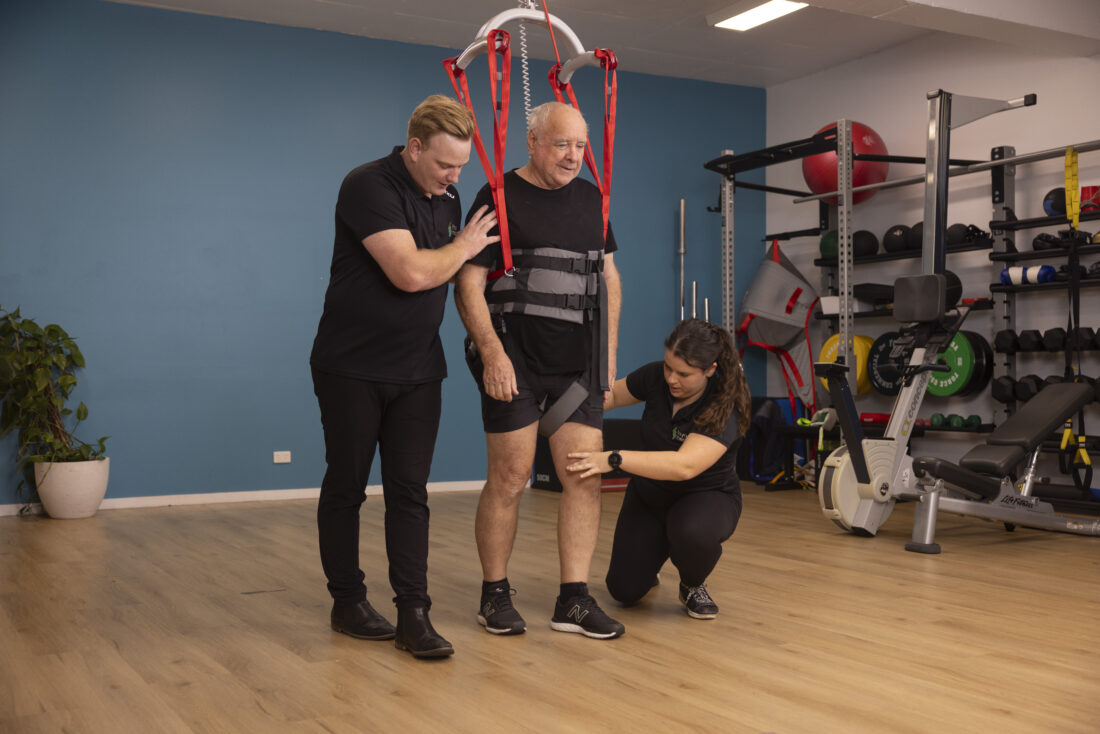
8 Reasons Why Neurological Rehabilitation is an important skill set for Exercise Physiologists working with NDIS Participants
Neurological rehabilitation is a critical skill set for exercise physiologists, especially when working with participants in the National Disability Insurance Scheme (NDIS), for several key reasons:
1.Specialised Support for Neurological Conditions
Exercise physiologists with expertise in neurological rehabilitation are equipped to design and implement exercise programs tailored to individuals with neurological conditions such as stroke, multiple sclerosis, Parkinson’s disease, spinal cord injuries, and traumatic brain injuries. These conditions often require specialised interventions to address unique challenges such as motor control deficits, muscle spasticity, balance issues, and coordination problems.
2. Enhancing Functional Independence
Neurological rehabilitation focuses on improving functional abilities and independence in daily activities. For NDIS participants, who often have significant physical and neurological impairments, targeted exercise interventions can lead to meaningful improvements in their ability to perform tasks such as walking, dressing, and other activities of daily living (ADLs). This enhancement in function directly contributes to a better quality of life and greater independence.
3. Evidence-Based Interventions
Exercise physiologists trained in neurological rehabilitation use evidence-based practices to guide their interventions. This means they apply the latest research and clinical guidelines to ensure that the exercise programs they design are effective and safe. For NDIS participants, this approach maximises the likelihood of positive outcomes and minimises the risk of injury or adverse effects.
4. Multidisciplinary Collaboration
In the context of the NDIS, exercise physiologists often work as part of a multidisciplinary team that may include physiotherapists, occupational therapists, speech therapists, and other health professionals. Neurological rehabilitation skills enable exercise physiologists to effectively communicate and collaborate with other team members, ensuring a cohesive and comprehensive approach to the participant’s care.
5. Personalised Care Plans
Neurological rehabilitation requires a personalised approach because the impact of neurological conditions can vary widely among individuals. Exercise physiologists skilled in this area can assess each participant’s specific needs, limitations, and goals to create customised exercise programs. This personalised care is crucial for addressing the unique challenges faced by NDIS participants.
6. Promoting Neuroplasticity
Neuroplasticity, the brain’s ability to reorganise itself by forming new neural connections, is a foundational concept in neurological rehabilitation. Exercise physiologists use this principle to design interventions that stimulate the brain and nervous system, promoting recovery and adaptation. For NDIS participants, engaging in activities that enhance neuroplasticity can lead to significant improvements in function and overall health.
7. Mental Health Benefits
Living with a neurological condition can take a toll on mental health, leading to issues such as depression and anxiety. Exercise has well-documented benefits for mental health, and tailored exercise programs can help alleviate these psychological burdens. For NDIS participants, improved mental health can contribute to greater overall well-being and engagement in their communities.
8. Long-term Health and Wellness
Neurological rehabilitation is not just about immediate recovery but also about maintaining long-term health and wellness. Regular, structured exercise can help manage chronic symptoms, prevent secondary complications, and promote sustained improvements in physical and cognitive function. This long-term perspective is vital for NDIS participants, who may have lifelong disabilities.
In summary, neurological rehabilitation is an essential skill set for exercise physiologists working with NDIS participants because it enables them to provide specialised, evidence-based, and personalised care that addresses both the physical and psychological challenges associated with neurological conditions. This comprehensive approach helps improve functional independence, quality of life, and long-term health outcomes for individuals with disabilities.
If you would like to make an initial appointment with any of our available Exercise Physiologists to assess you, and develop a treatment plan for your neurological rehabilitation program, you can contact us on 1300 630 204 or email reception@bodysmarthealth.com.au